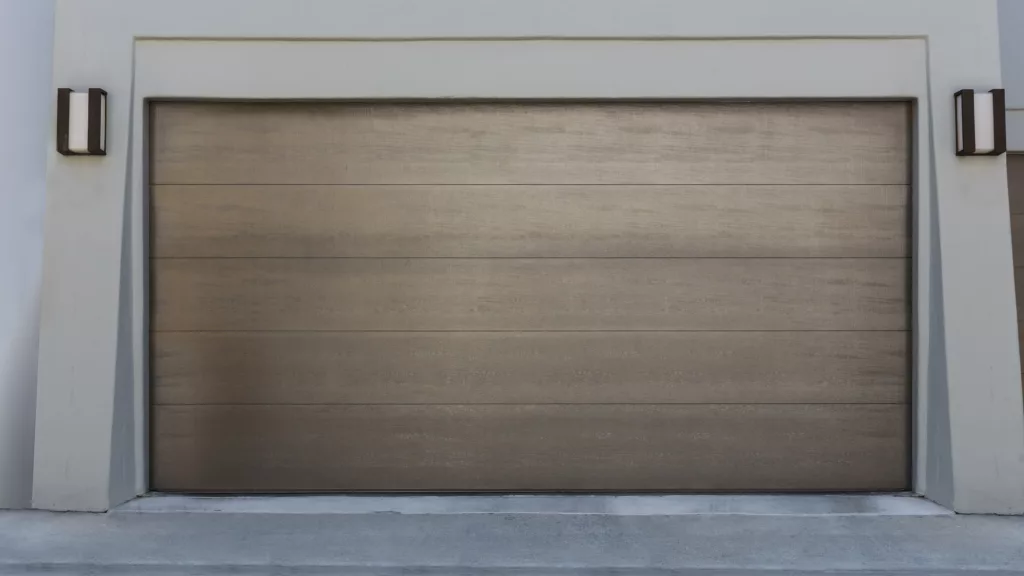The Causes for a noisy garage door
1. Loose Hardware
The core of this issue lies in the garage door’s movement along tracks, supported by rollers, springs, and cables. This smooth yet vibratory motion can eventually loosen the hardware securing the door’s panels, brackets, and tracks. Even slight loosening can create movement, resulting in noticeable and potentially bothersome rattling noises.
Such rattling signifies that parts of the door are moving in unintended ways, which isn’t just noisy but could also herald potential mechanical failures. Loose hardware might lead to misalignments and uneven stress, potentially causing more significant damage if neglected.
To combat this, regular inspection and tightening of the garage door’s hardware are essential. Homeowners can use tools like a socket wrench to ensure nuts and bolts are appropriately tight, focusing on critical areas like the lifting mechanism and track brackets. Care must be taken to avoid overtightening, which can damage the threads or components. Regular maintenance like this is key to preventing noise and ensuring the longevity of your garage door.
2. Worn Rollers
3. Unlubricated Parts
Regular lubrication is key to a well-functioning garage door. It significantly reduces friction, thus minimizing noise and wear. Torsion springs, crucial for door movement, and rollers, particularly metal ones, are highly susceptible to noise without proper lubrication. Hinges also demand regular lubrication to prevent squeaks during operation.
Choosing the right lubricant, such as silicone or lithium-based grease, is essential for effective lubrication. Apply it to clean parts to prevent dust accumulation and mess. A bi-annual lubrication routine is ideal for maintaining a noise-free and efficient garage door, prolonging component life and ensuring smooth operation. Proper lubrication is a straightforward, effective method to keep your garage door quiet and functional.
lithium grease that I use many times and recommend for my customers is the Professional Garage Door Lubricant with Smart Straw Sprays 2 Ways by 3-IN-ONE
4. Misaligned tracks
Misaligned tracks in garage doors can lead to scraping sounds, indicating a problem in the door’s operation. Tracks guide the rollers, ensuring smooth movement, but can become bent or misaligned due to physical impacts, wear and tear, or poor installation. When misalignment occurs, the rollers rub against the tracks, resulting in scraping noises.
This noise not only disrupts but also signals potential damage to both rollers and tracks, possibly affecting the door’s safety. To address this, inspect the tracks for bending or misalignment, ensuring they are parallel and perpendicular to the ground. Adjustments typically involve loosening the mounting brackets, realigning the tracks, and then retightening, being careful not to cause additional bending.
For severe misalignments, especially where tracks are significantly bent, professional repair or replacement is advisable. Regular maintenance and prompt addressing of alignment issues can prevent further complications.
5. Spring Replacement

6. Damaged Door Panels
Such damage not only increases noise but can also impact the door’s functionality, potentially affecting security and insulation. Addressing panel damage usually requires professional evaluation. Minor issues might be repairable, but severe damage often necessitates panel replacement. Prompt attention to damaged panels is crucial to prevent further deterioration and maintain the garage door’s quiet and efficient operation. Regular inspections are recommended to detect any damage early and keep your garage door in optimal condition.
7. Opener Maintenance
When should I contact an expert when my garage door is noisy?
Safety is our top priority. If you’re unsure about your garage door’s operation or safety, especially after noticing unusual sounds or movements, we encourage you to consult with us. Our team has the skills to accurately assess and mitigate any risks, ensuring your door functions safely and efficiently.
Furthermore, if your attempts at noise reduction are unsuccessful or the issue worsens, this indicates a need for professional intervention. Persistent problems often suggest deeper underlying issues that require expert diagnosis and repair. Reaching out to us at Urban Garage Door isn’t just about silencing a noisy door; it’s about safeguarding your safety and extending the lifespan of your garage door. Trust in our expertise to provide reliable and effective solutions.




